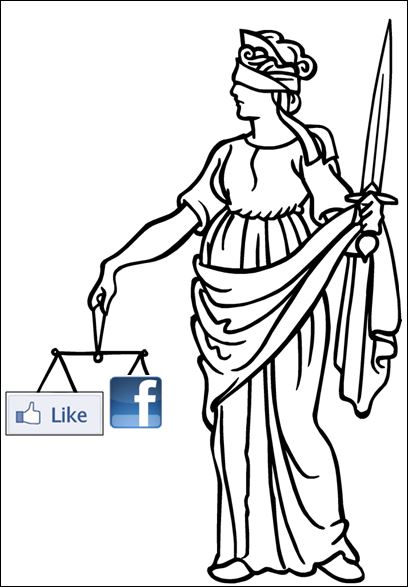By Kerry Gorgone, {grow} Contributing Columnist
Maybe it’s time to go back and examine which pages you’ve “liked” on Facebook. Here’s why …
The Case
Four deputies and two civilian employees were fired after they “Liked” the Facebook page of the candidate opposing their boss in the campaign for sheriff. They sued for wrongful termination, alleging that the firing violated their First Amendment right of free speech.
But does clicking “like” really mean anything? A U.S. District Court judge in Virginia doesn’t think so: he ruled that Facebook “likes” do not constitute speech, and therefore receive no protection under the First Amendment. Consequently, the terminations did not violate the First Amendment.
Can Liking a Facebook Page cost you your job?
The Appeal
That decision is now on appeal before the Fourth Circuit Court of Appeals. The Sheriff’s Office maintains that the firing was unrelated to the employees’ social media activity. They also contend that liking a page can mean many things, so that simple “click of a button” does not constitute a “statement” that could be protected as speech.
I Don’t “Like” the Employer’s Argument
The defendant’s logic seems faulty to me. If I say “the President is so great,” you might infer a number of different meanings, depending on the context and my body language at the time. Nonetheless, my expression qualifies as speech, whether I genuinely admire the President, or roll my eyes and use a sarcastic tone of voice. Consequently, the possibility of a statement’s multiple meanings shouldn’t undercut First Amendment protection.
Refusing to consider a Facebook like “speech” from a Constitutional standpoint ignores the reality of modern day communication in the social media era. Liking a Facebook page is making a statement. Maybe it’s not as literal as “I like [Page Title],” but it’s certainly akin to “I publicly acknowledge the importance of this topic to me personally, and support this page’s content.”
“Liking” something should be considered speech, just as if I’d typed “I like something.” How much protection that speech deserves depends on what that “something” is. If I like a political candidate, that statement is entitled to more protection than if I like Fluff.
Contrary to the employer’s position in Bland v. Roberts, the simplicity of clicking “like” should not exclude that action from the definition of speech. Other simple actions have passed muster, like wearing a t-shirt that says “F*ck the Draft,” or wearing a black armband in protest of an ongoing war.
Can Liking a Facebook Page Cost You Your Job?
Apart from the First Amendment, think how dicey employment law will get if I like a Facebook page for “What to Expect When You’re Expecting,” and then my boss fires me, suspecting (though not stating) that I must be pregnant. The firing could violate the Americans with Disabilities Act.
An employee might like a page in support of gay marriage, the Republican Party, the Tea Party or fetish parties. Whatever the nature of the pages we like on Facebook, liking them is a conscious decision to broadcast our participation and support, even at a somewhat superficial level.
But then, that’s my opinion. Until we have legal precedent protecting our right to “like,” I’d recommend double checking your Facebook settings. If the pages you’ve liked are visible to the public, you may want to unlike pages that might offend a potential employer, or change your settings to hide that information.
On the other hand, you could just let it all hang out. After all, I’d never want to work for someone who didn’t like Fluff anyway. What is your take on this issue?
